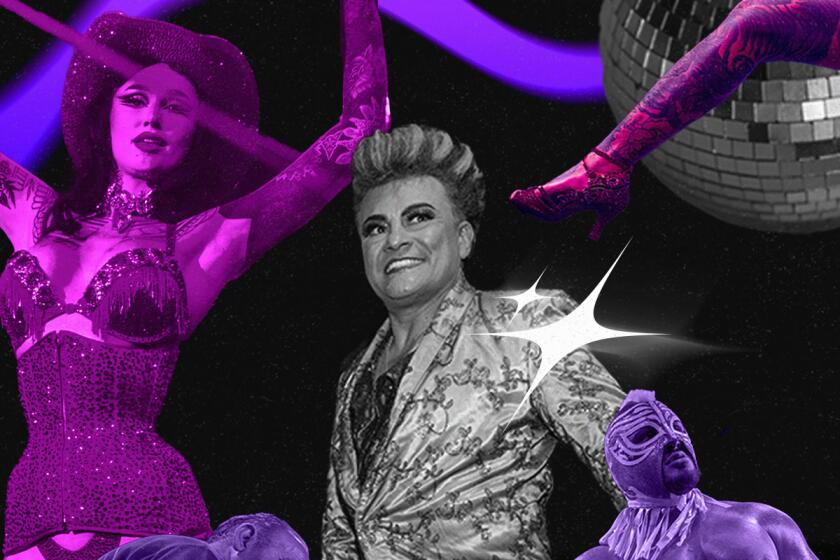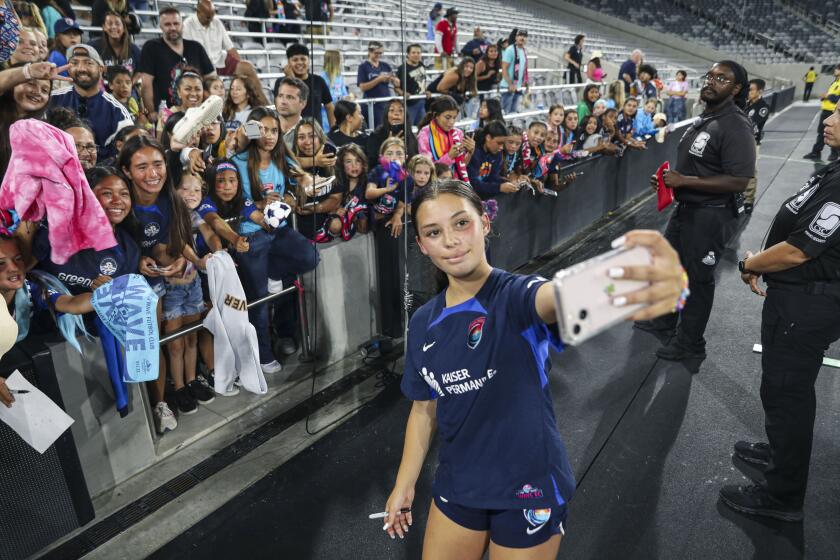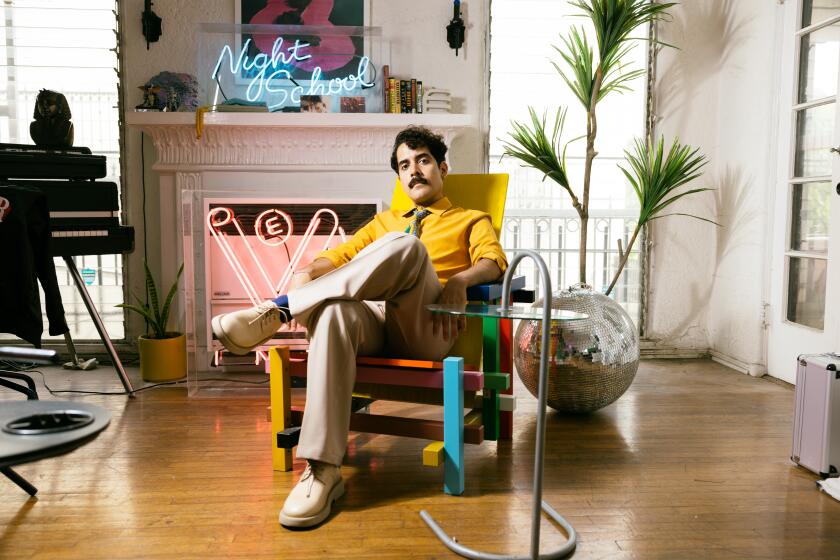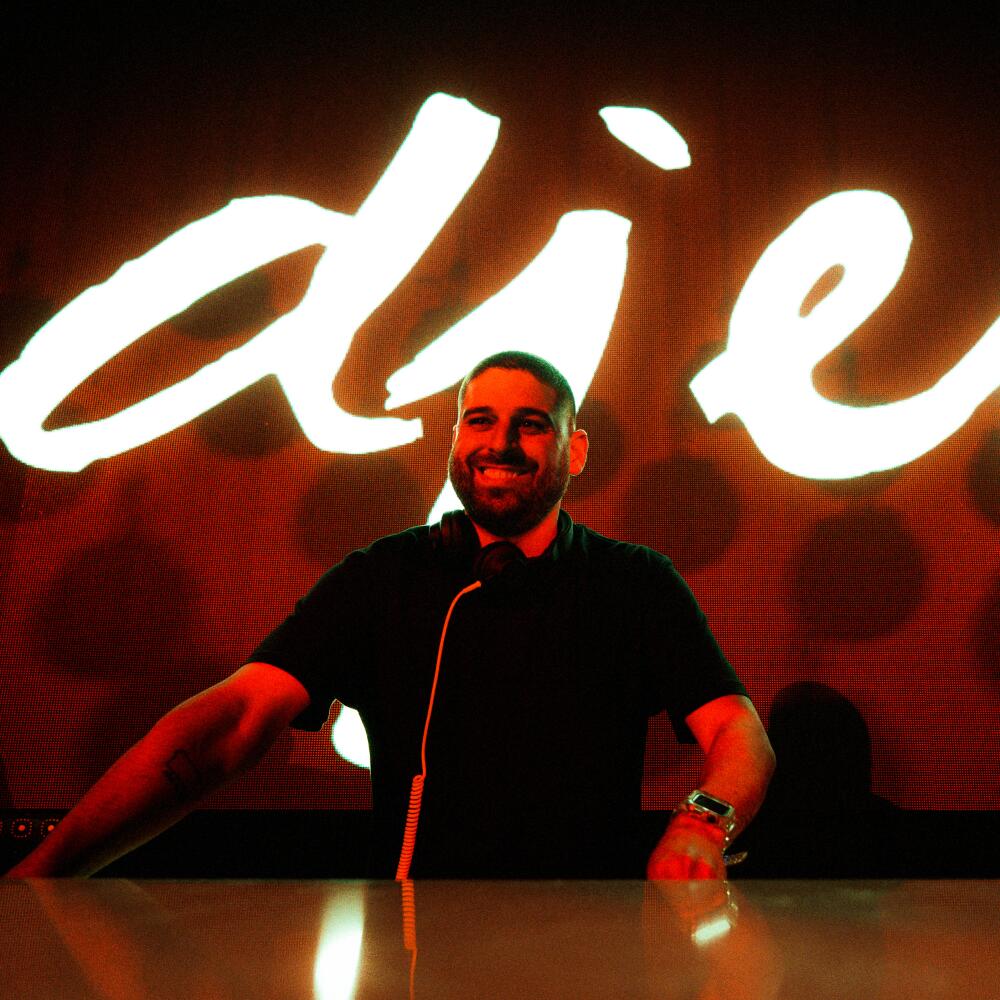
- Share via
It’s game day at Mercedes-Benz Stadium. Thiago Almada, a World Cup champion, steps out of the Atlanta United FC’s bus. He greets fans and signs a few autographs before heading straight to the DJ booth. Eumir Gutierrez, better known as DJ EU, has been rallying the crowd outside the stadium, mixing Bad Bunny’s greatest hits with quintessential Atlanta hip-hop songs.
A big hug, a handshake and the camaraderie between them exemplify DJ EU’s relationship with the players and his role as part of the team.
Saul Armendariz began his groundbreaking journey by overcoming homophobic taunts from crowds as an exotico, but now Cassandro is seen as a trailblazer and is the subject of a new Prime Video biopic.
Almost two decades ago, DJ EU was shuffling playlists at college parties. Sixteen years ago, he was running cables for other DJs in the city — always on standby — hoping the skills he had been practicing at home would come in handy if one of the resident DJs at the club didn’t show up. Today, he is performing for the 2018 MLS Cup champions and the largest soccer home crowd in the league — 71,635 that day, to be exact.
Born in San Juan, Puerto Rico, and named after a Brazilian musician, Gutierrez grew up playing classical music in his high school band.
“Music is in his veins,” says his older sister, Yasiris Gutierrez. “He even wanted to be a rock star back home at some point.”
When he turned 18, Gutierrez moved to Atlanta. The plan was to be a mechanical engineer, so Gutierrez attended Georgia Perimeter College. It was there where he got the itch to set the mood at parties through music.
Messing around with playlists, still in college, and with a side gig at a Verizon Wireless store, Gutierrez invested $2,500 in his first turntable. Soon, he got a job in promotions at Clear Channel’s Spanish radio stations. As part of his duties, Gutierrez went around the city from club to club, running cables to help other DJs do live broadcasts promoting Atlanta’s Latin nightlife.
But in 2008, Latin nightlife was a very narrow term in the South.
DJ pioneers like Carlito Nova, Fernando Fernandez and King Tito had already been opening doors and paving the way. But in Atlanta, Latin music was found only in small rooms in the back of the clubs, in specific neighborhoods on the city’s outskirts, or in shopping centers at Latin restaurants that stayed open after hours.
The music genres were as scarce as the locations. Latin music meant salsa, bachata and merengue nights, or regional Mexican. “Club owners were afraid to let me play anything else,” says DJ EU. “They said it wouldn’t work, and the crowd often didn’t accept it.”
“For kids like me who were raised on their parents’ Latin music, and then went to school and listened to mainstream and other genres in English, we lived in between both worlds,” says Randall Ruiz, better known as DJ Nica. “We didn’t want just salsa. We wanted a little bit of everything.”
At the youthful age of 15, Melanie Barcenas is already leaving a mark on the future of women’s soccer by breaking records in the National Women’s Soccer League.
Ruiz met Gutierrez in 2008 and quickly started following him around to learn as much as he could from Gutierrez’s DJ gigs. Around the same time, Francisco Perez and Pablo Andres Lopez came onto the scene. One thing they all had in common was that they felt left out of Atlanta’s nightlife because it didn’t reflect their Latinidad. So, they did exactly what any young soul looking for a good time would do: they threw underground warehouse parties.
“Viva La Rave” became an underground movement where people danced, soaked in sweat, into the early morning hours. The playlist had no boundaries. They played everything from EDM to hip-hop, with a little bit of salsa, some rock and, of course, reggaeton.
“We were ahead of our time,” says DJ EU.
The underground parties outgrew the warehouses quickly. Some clubs and bars around the city started to buy into the movement.
For Alan Palomo’s new album ‘World of Hassle,’ the intrepid pop artist cites Luis Miguel, Los Tigres Del Norte and his father as inspirations.
Staying true to his vision of mixing Latin music with other genres and tapping into a market that he felt had been underserved in the nightlife scene, DJ EU said no to gigs that expected the familiar from a Latin club. Other times, he wasn’t the one turning them down.
“I was fired from Tongue & Groove because it just wasn’t working for them,” says DJ EU about his first time at one of Atlanta’s hottest clubs.
Despite it all, he stuck with his style.
“There was a gap in the market that really reflected on the maturity of the Hispanic community,” says Daniel Maldonado, also known as DJ Danny. “[EU] really catered to an audience [that] didn’t necessarily have only one taste in music. [He] strongly believed that just because you like Latin music, it doesn’t mean you should only be able to hear it in the side room.”
Fans enter the stadium for match day — Atlanta United FC will face off againt Inter Miami FC. An explosive intro mix catches the attention of attendees.
The unmistakable beat of Daddy Yankee’s “Gasolina” transitions to “Atrévete-te-te” by Calle 13, which is then followed by a trip to 2000 with “La Bomba” by Azul Azul. The mini set concludes with one of the songs of the summer, “Ella Baila Sola” by Eslabon Armado and Peso Pluma.
“He makes me feel like I am home,” said Emilio Sanchez, a 16-year-old Atlanta-born fan whose family is from Mexico. “I always swing by to see him. The music he plays connects with me.”
Like Sanchez, many other fans stopped by to fist-bump DJ EU, get a selfie and even get their jerseys and scarves autographed.
“EU comes excited and ready to create an impact,” says Georgia O’Donoghue, vice president of business operations for Atlanta United.
“He has become a partner of ours in thought rather than just a hired entertainer. He understands the importance of our brand, which makes him easy to work with. Not to mention, he’s a great DJ.”
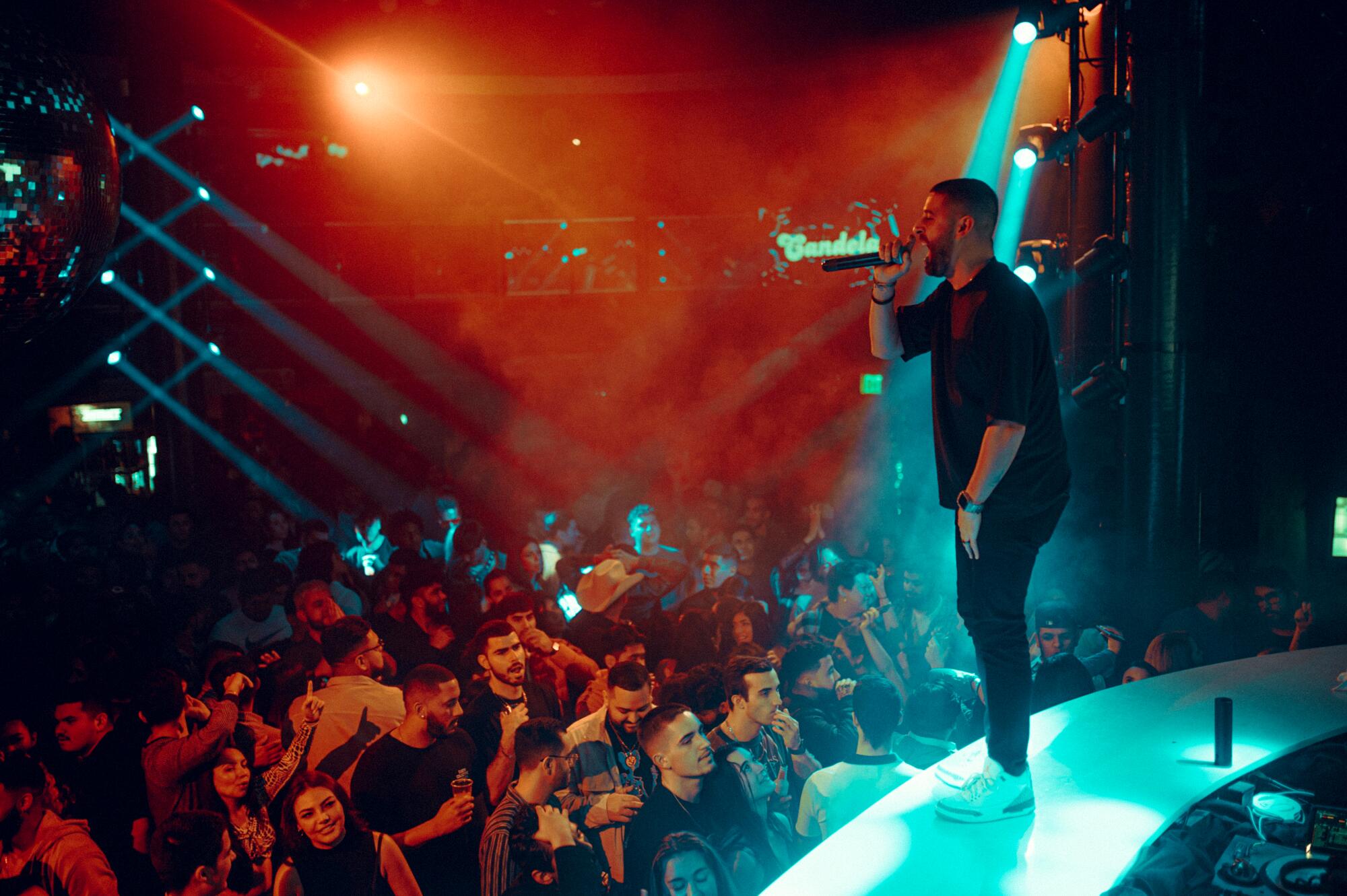
As soon as the final whistle goes off on the pitch, DJ EU makes his way to the club.
Tonight, he’s at District Nightclub for “Candela,” one of several curated parties he hosts. (DJ EU is also one of the main room resident DJs at Tongue and Groove, the same club that fired him earlier in his career.) With the same unmatched energy from the soccer game earlier, DJ EU takes a few sips of his Red Bull and heads to the DJ booth.
A lot has changed in the more than a decade since the underground warehouse parties.
“At some point, we were booking the top venues in Atlanta and playing our style,” says Lopez, who credits DJ EU for helping out those around him and fostering a community.
“These are not parties just for Latinos anymore,” says DJ EU. “We are not playing just bachata or salsa anymore. We are no longer in the back room. We are the main event.”
Daniela Cintron is a Mexican-born bilingual journalist whose work focuses on telling the stories of underrepresented communities. She is based in Atlanta and pursuing a master’s degree at Harvard. @danicintron
More to Read
The Latinx experience chronicled
Get the Latinx Files newsletter for stories that capture the multitudes within our communities.
You may occasionally receive promotional content from the Los Angeles Times.

